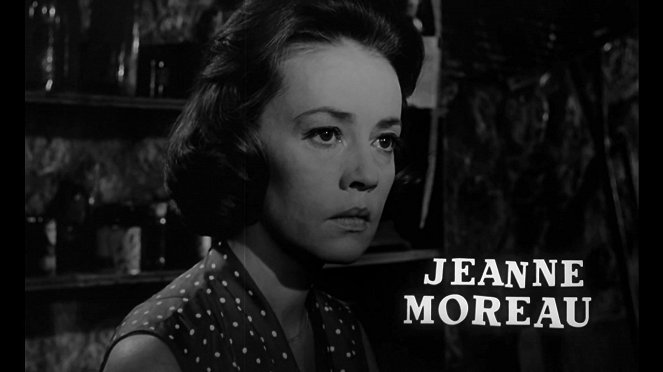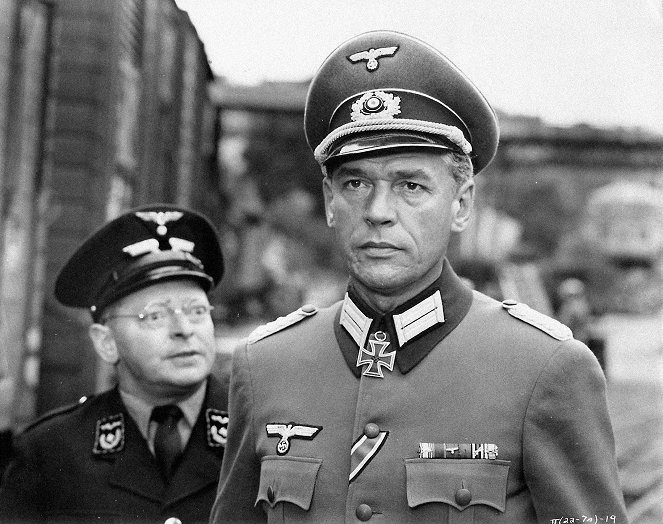Zeneszerző:
Maurice JarreSzereplők:
Burt Lancaster, Paul Scofield, Jeanne Moreau, Suzanne Flon, Michel Simon, Wolfgang Preiss, Richard Münch, Jacques Marin, Howard Vernon (több)Streaming (3)
Tartalmak(1)
A II. világháború a vége felé közeledik. A német megszállók elhagyni készülnek Párizst, de nem szándékoznak üres kézzel távozni. Egy egész vonatszerelvényt raknak meg a francia impresszionista festők képeivel, és Németország felé robognak a franciák „nemzeti büszkeségével". Vezetőjük, a műkedvelő Von Waldheim ezredes eléri a német parancsnokoknál, hogy a szerelvény minden más szállítmánnyal szemben elsőbbséget élvezzen. A kifosztott múzeum igazgatónője kétségbeesésében az ellenállóktól kér segítséget, hogy megmentse a műkincseket. Labiche és egysége azonban túl sok vért látott már a háború során ahhoz, hogy emberéleteket kockáztassanak holmi képekért. (Fantasy Film)
(több)Videók (1)
Recenziók (4)
Első osztályú filmes munka, amely precizitásával (és tematikus kapcsolódásában) Singer Valkűr filmjére emlékeztetett. Egy lebilincselő thriller, amely az okos forgatókönyvnek köszönhetően egy lépéssel a néző előtt jár, építi a feszültséget, nem fukarkodik a számos és a maga idejében látványos robbanásokban, és főleg pazarul megírt és eljátszott Scofield főgonosszal rendelkezik. Hajthatatlansága és náci felsőbbrendűsége a művészet iránti gyengeségével találkozik, konkrétan a festmények iránt, amelyeket vonattal akar Párizsból Németországba vinni, amit - szavai szerint - "egy darab hús", amelyet a népi hős Lancaster formálja meg, nem tud értékelni, így azt sem tudja, miért harcol. John Woo biztos imádja ezt a filmet. Az ötödik csillagot csak egy hajszállal kerülte el.
()
No idyll with romantically whistling train, merrily chuffing though the glorious French landscape, but a reality of deafening iron monsters spouting steam and oil at the end of occupation. Basically the very best and most suspenseful way of paying respect to the memory of the French railroad Resistance. Apart from one detail. The character played by Paul Scofield. Such a crudely negative character stands out like a blot on the landscape in this movie. You would expect him to torture his prisoners and laugh crazy Huron laughter while doing so. But in fact, all the characters are really “gray", and only he is clearly black-and-white, although the motivation side is convincing. He would have fitted in well in a naively delivered movie, but here he just spoils the aura of convincingness.
()
Ideologically old-world but formalistically progressive, The Train can be seen as bridge between the era of epic war movies of previous years and the action-adventure flicks in a war setting that came in later years. From the former category, The Train takes a stellar ensemble cast, as well as a sombre ethos and grand moral questions, which form the film’s backbone. From the latter category, it can be said that emphasis is placed on the action scenes and spectacle. But none of the films that came later (whether we take the Clint Eastwood movies or a bunch of Italian genre flicks as examples) can match The Train in this respect. Frankenheimer stages captivating sequences in which he uses precise compositions with multiple planes where he constantly makes the presence of the characters felt within that grand action. The most important thing here is the breathtaking moments when the actors are present at or directly involved in dangerous feats in close proximity to passing trains, crashing locomotives and exploding railway stations. As pointed out by Christopher McQuarrie, who holds the film up as a reference work for the new Mission: Impossible, in a number of scenes it is amazing how they managed to do this in an era before digital effects and how many sequences give the viewer the feeling of being close to the action, because everything is simply captured in the camera as it happens instead of using optical effects and rear projections. Also, in many of the suspenseful passages, the filmmakers take care to set the action in what are clearly actual places, which are used thoroughly to dramatic effect in the given sequences. As a result, the one or two scenes shot in a studio or in modified interiors inevitably seem out of place.
()
Riveting - that's the word that best describes The Train. Frankenheimer's ornate action ride doesn't look like a 64-year-old film at all, and in this day and age of digital effects and shaky cameras, it has absolutely nothing to be ashamed of. Don't believe me? When you see a locomotive "race" with a spitfire, one perfect crash or the chilling finale of "I need your trucks", you'll change your mind. The great atmosphere is aided by the tough-as-nails Lancaster, the art-loving Colonel Scofield, the black-and-white picture, Jarre's music, the often imaginative camera positions... Basically everything. I like trains, I like those guy movies from the Second World War and their taciturn heroes, I like Germans who think, who are even likeable and don't just look like stupid sausage-eaters who can be run over by a five-year-old... Five stars.
()



Hirdetés